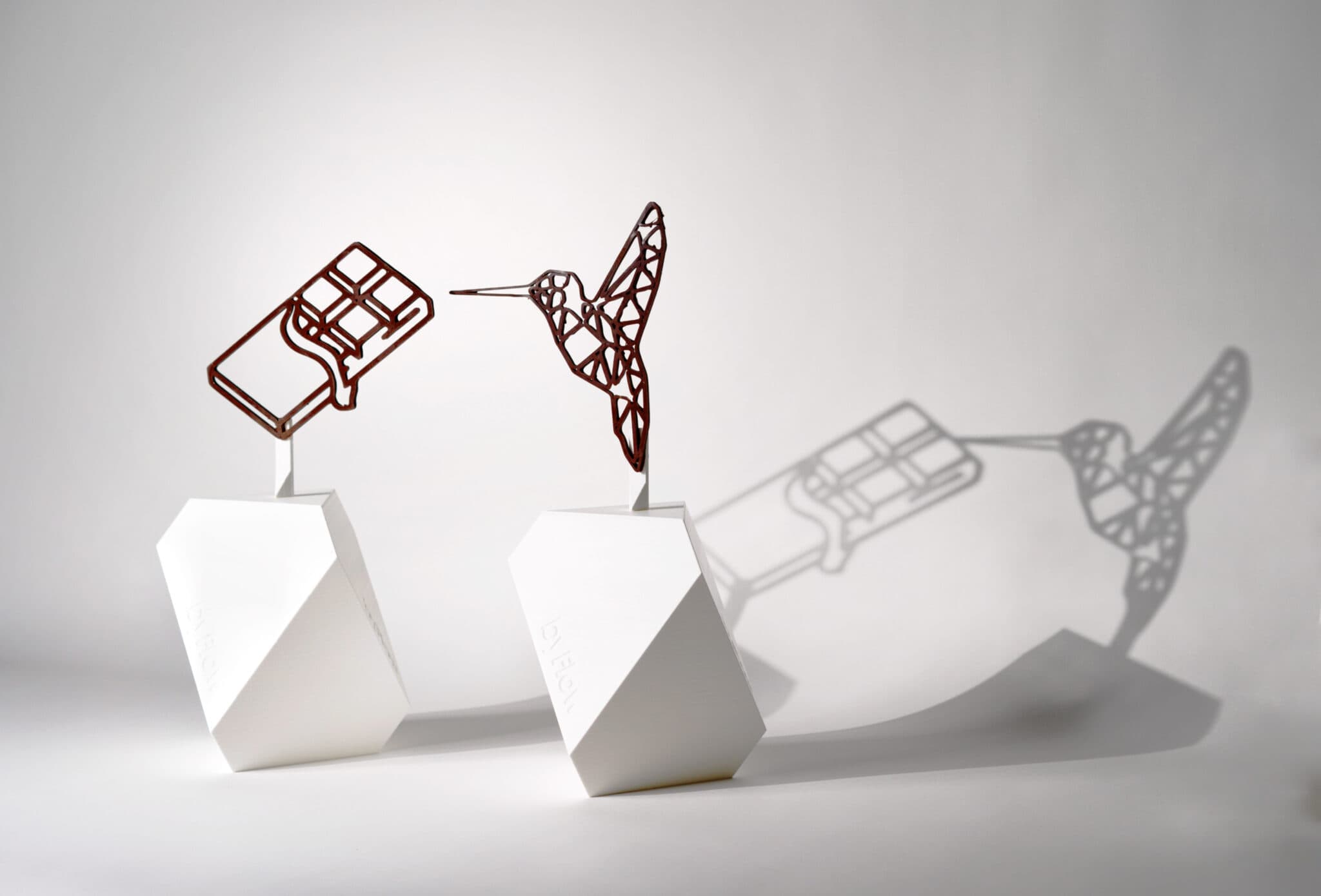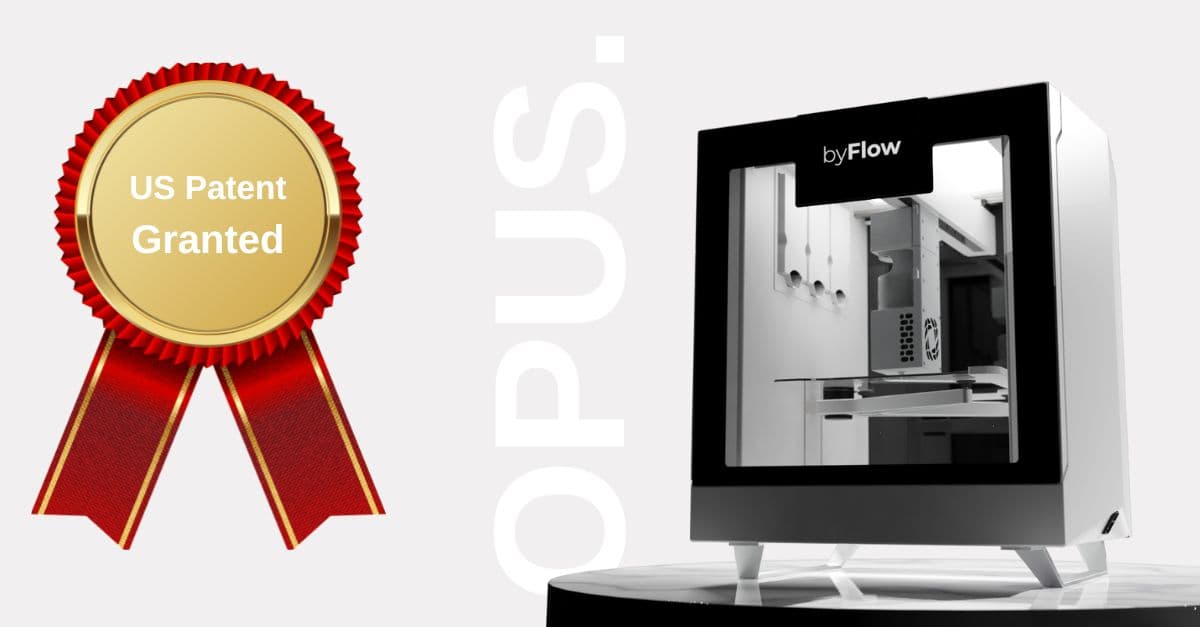Dutch startup byFlow gets U.S. patent for 3D chocolate printer
The company sees a future full of opportunities to create personalized food products that delight consumers and reduce production costs.
Published on December 25, 2024

Team IO+ selects and features the most important news stories on innovation and technology, carefully curated by our editors.
Eindhoven-based byFlow has received a US patent for their innovative 3D chocolate and food printer. This technology, developed in 2015, opens doors to personalized chocolate experiences and more efficient production processes in the food industry. The patent marks an important milestone for byFlow and validates its vision in food technology. The company sees a future full of opportunities to create personalized food products that can not only delight consumers but also reduce production costs.
Since its founding in 2015, byFlow has focused on research and development of 3D printing technologies for food. The patent they have now obtained results from years of effort and experimentation. This recognition offers byFlow a competitive advantage and the opportunity to enter new markets and commercialize its technology.
ByFlow won a Gerard & Anton Award in 2018.
Much patience needed
CEO Nina Hoff calls the obtained patent a “hard-won cherry on top.” She heard the good news during a meeting where her brother and co-founder Floris Hoff was also present. “When we got the news, we were in a meeting with the team, and I got a little angry with Floris because he was looking at his phone distracted the whole time. When I asked him what he was doing, he looked at me and said that after 7 years, we finally got it together. We gave each other high-fives and cried some happy tears. After many hours of research, engineering, experimentation, and headaches - getting an IP is not easy, and you need a lot of patience - I am so incredibly happy that we got this through with the team and that we can finally celebrate this big milestone.”

© byFlow
Despite the progress, there are still challenges to overcome in the 3D food printing industry. Standardization of food paste and improving extrusion processes remain key areas of focus. These obstacles must be addressed to make the technology widely applicable and safe for consumers. Research into improved printing techniques and the safety of printed food is critical to the industry's future adoption of these technologies.
Impact on global food production
3D food printing can play a role in addressing global food security issues exacerbated by climate change. The technology has the potential to reduce food waste and make production processes more sustainable. By producing customized food products, one can address specific nutritional needs and thus contribute to a healthier society.
Meanwhile, byFlow looks forward to a future in which its technology pushes culinary boundaries and transforms industrial processes. The company is committed to working with partners worldwide to fully realize the potential of 3D chocolate and food printing. Their vision is to make a lasting impact on how we produce and consume food, with an eye on sustainability and innovation.
